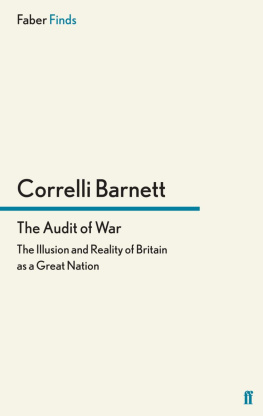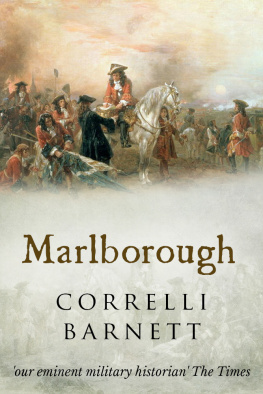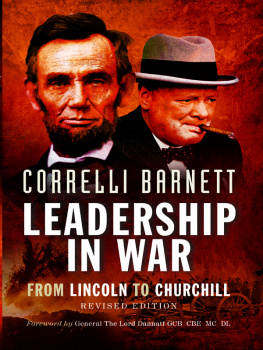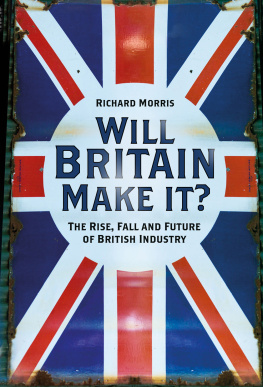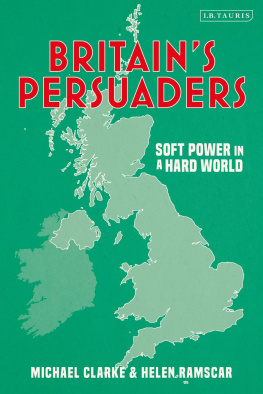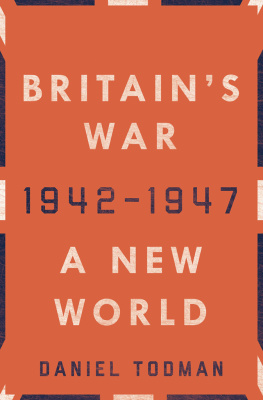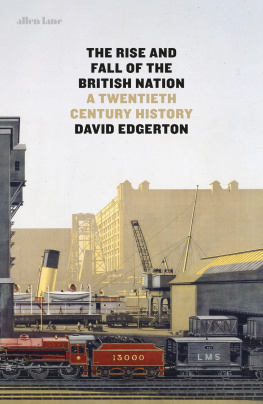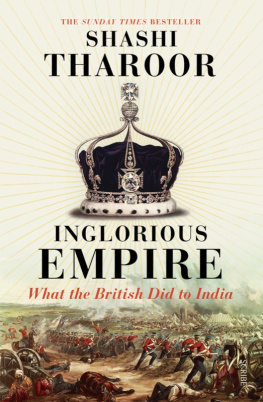

THE AUDIT OF WAR
The Illusion and Reality of Britain
as a Great Nation
CORRELLI BARNETT

For my grandchildren
Alexander, Julia and Philippa
in the hope that England may yet prove
stronger than the storms.
Contents
Acknowledgements
Once again I must first and foremost thank my wife Ruth for patiently and accurately typing a fair copy of a much edited working script, and for acutely pointing out lapses in clarity or style; and for fulfilling as always the role of a highly professional one-woman general staff.
Secondly, I would like to thank those who were kind enough to read the typescript in whole or in part: Professor Sir Hermann Bondi, Professor Sir William Hawthorne, Professor Roy Acheson, Dr Wijtold Tulasiewicz, Dr Richard Overy, Dr Derek Morris, Mr Aubrey Jones and Mr Keith Williams. Their wise criticisms and specialised knowledge saved me from many errors of fact or interpretation, but not, I fear, from those that remain. I am especially grateful to my editor, Mr Peter James, for his meticulously detailed scrutiny of the text and sources.
I wish to express my gratitude to Mr Michael Alcock, my publisher, for his support, understanding and forbearance during the long gestation of this book; and to Mr John Bright-Holmes, who encouraged me to pursue the original idea. I would also like to take this opportunity of thanking my agent, Mr Bruce Hunter, for all his valued counsel and help over the years.
My particular thanks are due to the Economic and Social Research Council, without whose financial backing it would not have been possible to carry out the necessary researches. I must also thank the National Economic Development Office, the Ready Mixed Concrete Company and BOC plc for their supplementary support.
I wish to express my indebtedness to the professional knowledge, courtesy and willing help of the Search Room staff at the Public Record Office, Kew, where so much of the research for the book was carried out; to my colleagues in the Churchill Archives Centre, Cambridge, and to the staffs of the following institutions: the University of East Anglia Library; the London Library; the Library of the Royal United Services Institute for Defence Studies; the Churchill College Library, Cambridge; the Statistisches Bundesamt in Bonn; and the US Army Military History Institute.
The author is indebted to the following for permission to quote from works in their copyright:
Dr E. G. Bowen: the Bowen Papers in the Churchill Archives Centre, Cambridge. The British Library: the Chuter Ede Diary. Croom Helm: Mining and Social Change: Durham County in the Twentieth Century edited by M. Bulmer. Chatto & Windus: The Uses of Literacy: Aspects of Working-Class Life, With Special Reference to Publications and Entertainments by R. Hoggart. The Lord Wilson of Rievaulx: New Deal for Coal by H. Wilson. George Allen & Unwin: The Pillars of Security and Other War-Time Essays and Addresses and Full Employment in a Free Society by Sir W. H. Beveridge. Basil Blackwell: History of the British Steel Industry by J. C. Carr and W. Taplin. Harvard University Press: The British Shipbuilding Industry 18701914 by S. Pollard and P. Robertson. Oxford University Press: William Temple Archbishop of Canterbury: His Life and Letters by F. A. Iremonger. Victor Gollancz: The Making of the English Working Class by E. P. Thompson. Routledge & Kegan Paul: The Social Background of a Plan: A Study of Middlesbrough edited by R. Glass. Trustees of the United Kingdom Carnegie Trust: Disinherited Youth: A Report on the 18-plus Age Group; Enquiry Prepared for the Trustees of the United Kingdom Carnegie Trust .
The author also wishes to thank the following newspapers for permission to quote from their columns: the Daily Mail , the Daily Mirror , the Daily Telegraph , the (Manchester) Guardian , the Sunday Times and The Times .
Extracts from Crown Copyright material are reproduced with the permission of the Controller of Her Majestys Stationery Office.
Authors Preface
This book is an operational study; its purpose is to uncover the causes of Britains protracted decline as an industrial country since the Second World War. For industrial strength supplies the fundamental factor in total strategy, the essential basis of a nations power and its material well-being alike. The book locates the causes of the British eclipse not in the events and policies of the postwar era, but in the British record during the war itself for total war submits nations to a ruthless audit of resources, talents and failings: human, social, cultural, political and technological no less than military. In the cases of France, Germany and Japan this audit was bluntly manifested in the fact, impossible to ignore, of outright defeat and occupation. In the case of Britain the audit of war remained hidden by the outward faade of victory, the propaganda about the scale of the national effort, and the deceptive inflow of American aid under Lend-Lease; it lay buried in the secret files of wartime production ministries and Cabinet committees. As a consequence, the British people never had to face the reality about themselves and their future place in the world, let alone come to terms with it and adapt to it accordingly.
It is therefore more than time for the audit of war on Britain to be rendered. But in rendering it this book explores much more than technological performance in the narrow sense. It ranges across the education and training of the nation; the human quality of the workforce; the capability of management; the cultural values and attitudes of the governing class and intelligentsia; even the influence of religion. For all these factors inter-reacted to determine the level of British operational efficiency as an industrial society.
The book also examines wartime national aspirations and government planning for the postwar era, and analyses the conflict of priority between reconstructing the industrial machine and building a new social order. It searches back for the historical roots of wartime problems; it looks forward to the consequences in the postwar period of wartime failures to tackle those problems. The underlying themes of the book lie in the contrast between national pretensions and desires, and national resources; in the clash in the British mind between realism and romanticism, reason and emotion; above all, in the powerful resistance throughout society to the changes essential for the achievement of maximum success as an industrial nation resistance maintained even under the spur of a war for survival itself.
Correlli Barnett
East Carleton, Norfolk
and
Churchill College, Cambridge
September 1985
Prologue
In the last days of April and the first days of May the light of peace began to glow strangely on the familiar Britain of sirens and tin-hats, battledress and sandbags, stirrup-pumps and air-raid shelters. It transmuted at a touch all such apparatus of recent survival into historical relics, at one with the medieval battlements of Englands castles and the pikes and halberds in the Tower Armoury. Henceforward the British people would need tools of a different kind in order to hold their place among the nations; skills and spirit of a different kind too. Meanwhile they could listen to the final news reports of the fading war on the Nine Oclock with pride as well as thankfulness.
Next page
